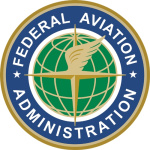- Industri: Government
- Number of terms: 35337
- Number of blossaries: 0
- Company Profile:
A condition that exists when landing on a surface with standing water deeper than the tread depth of the tires. When the brakes are applied, there is a possibility that the brake will lock up and the tire will ride on the surface of the water, much like a water ski. When the tires are hydroplaning, directional control and braking action are virtually impossible. An effective anti-skid system can minimize the effects of hydroplaning.
Industry:Aviation
A type of radar used at an airport to guide an aircraft through the final stages of landing, providing horizontal and vertical guidance. The radar operator directs the pilot to change heading or adjust the descent rate to keep the aircraft on a path that allows it to touch down at the correct spot on the runway.
Industry:Aviation
An altitude depicted on an instrument approach chart with overscored altitude value at which or below aircraft are required to maintain altitude.
Industry:Aviation
The boundary layer between the troposphere and the mesosphere which acts as a lid to confine most of the water vapor, and the associated weather, to the troposphere.
Industry:Aviation
The property of an aircraft that causes it, when disturbed from straight-and-level flight, to develop forces or moments that restore the original condition of straight and level.
Industry:Aviation
System allows simultaneous, independent instrument flight rules (IFR) approaches at airports with closely spaced parallel runways.
Industry:Aviation
The height above the earth’s surface of the lowest layer of clouds, which is reported as broken or overcast, or the vertical visibility into an obscuration.
Industry:Aviation
A published altitude representing the maximum usable altitude or flight level for an airspace structure or route segment.
Industry:Aviation
The layer of the atmosphere extending from the surface to a height of 20,000 to 60,000 feet, depending on latitude.
Industry:Aviation
